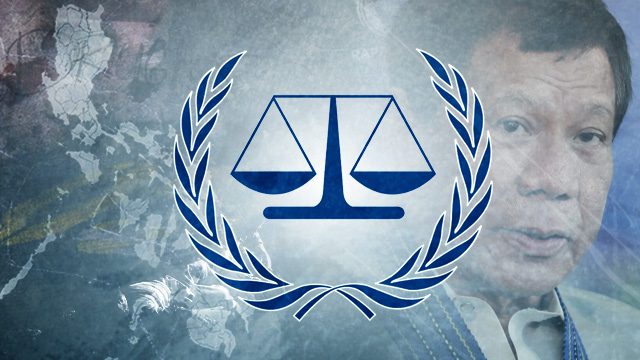SUMMARY
This is AI generated summarization, which may have errors. For context, always refer to the full article.

MANILA, Philippines – Should the International Criminal Court (ICC) decide to open a formal investigation into President Rodrigo Duterte’s campaign against drugs, the proceedings will be difficult to conduct after the Philippines withdraws from the ICC on March 17, according to an international expert.
“Withdrawal will make any investigation, if approved by a pre-trial chamber, more difficult as there will be no guarantee of actual cooperation,” said Priya Pillai, an international lawyer with expertise in international justice and human rights.
The ongoing preliminary examinations of ICC Prosecutor Fatou Bensouda will not be affected by the withdrawal because the Rome Statute demands cooperation for all proceedings that started before a country decided to break up with the ICC, like the Philippines did.
However, getting cooperation from its past and current members has not been ICC’s strongest suit.
If Bensouda decides to proceed with the investigation, it would have to be approved by the pre-trial chamber (PTC) first before the probe becomes formal. PTC judges can issue either a warrant of arrest or a summons for whoever it deems necessary.
Because the ICC has no police power, it will rely on countries’ own law enforcement authorities. If the subject travels, the host country can serve the warrant to help the ICC.
“Of course, realistically the likelihood of this occurring is slim, and so it will be difficult for the court to enforce decisions. The issue of cooperation is one that is key to the effective functioning of the court,” Pillai said.
Pillai offered the example of Kenya and how judges of the ICC eventually withdrew charges for lack of evidence.
“The court had to withdraw or suspend charges for lack of evidence, for reasons of witness intimidation and lack of cooperation by the government. Hence, this is a possible scenario in the case of the Philippines, if cases do go forward,” said Pillai.
In the ICC, trial cannot be held in absentia, meaning it could not proceed to trial if the court is not able to take the person into its custody.
“The ICC depends on state cooperation for matters of arrest and surrender – and this has definitely been a problem,” said Pillai.
The Supreme Court has not made a decision on petitions seeking to stop the withdrawal of the Philippines from the ICC.
Read more stories, in-depth reports, and explainers on the Philippines and the International Criminal Court in our microsite here. – Rappler.com
Add a comment
How does this make you feel?
There are no comments yet. Add your comment to start the conversation.